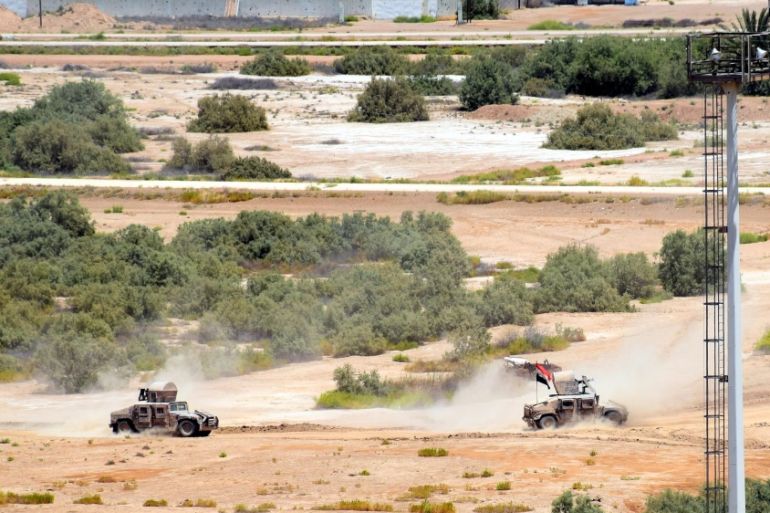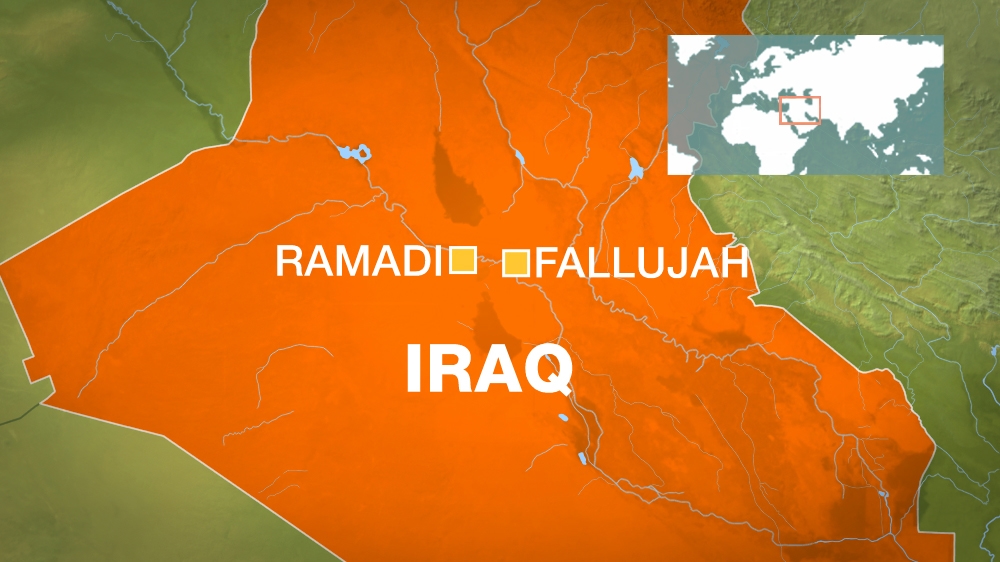Iraqi army claims liberation of Fallujah from ISIL
Commander says government forces now in city’s al-Julan neighbourhood, the last area to remain under ISIL control.

A senior Iraqi commander has declared that the city of Fallujah is “fully liberated” from the Islamic State of Iraq and the Levant (ISIL) group, after a military operation lasting more than a month.
Iraqi troops have entered the northwestern al-Julan neighbourhood, the last area of Fallujah to remain under ISIL control, the head of the counterterrorism forces in the operation, Lieutenant General Abdul-Wahab al-Saadi said on Sunday.
Keep reading
list of 4 itemsAustin confirms Russians deployed to airbase housing US military in Niger
What’s next as ‘heavy-handed’ US negotiates pullout from Niger?
Putin says ‘radical Islamists’ behind Moscow concert hall attack
Al-Saadi said the operation, which began in late May, “is done and the city is fully liberated”.
The Iraqi army was backed by US-led coalition air strikes and paramilitary forces, mostly Shia units.

“From the centre of al-Julan neighbourhood, we congratulate the Iraqi people and the commander in chief … and declare that the Fallujah fight is over,” he told Iraqi state TV, flanked by military officers and soldiers.
Some of the soldiers were shooting in the air, chanting and waving the Iraqi flag.
Fallujah, in Anbar province, has been under the control of ISIL, also known as ISIS, since January 2014.
The city, about 65km west of the capita Baghdad, was the first city to fall to ISIL.
Bloody battlefield
During a battle waged by ISIL’s predecessor, al-Qaeda in Iraq, Fallujah was the scene of some of the bloodiest urban combat with American forces.
In 2004, more than 100 US troops died and another 1,000 were wounded fighting armed rebels in house-to-house battles.
ISIL fighters still control significant areas in northern and western Iraq, including the country’s second-largest city of Mosul.
Fallujah civilians: ‘Militias take turns to torture us’
ISIL declared an Islamic caliphate on the territory it holds in Iraq and Syria and at the height of its power was estimated to hold nearly a third of each country.
The latest government offensive began on May 23 and has displaced more than 60,000 people, with most people forced to fend for themselves.
“They have been eating rotten dates and animal feed – and drinking from the river, which is undrinkable.” Karl Schembri, of the Norwegian Refugee Council, earlier told Al Jazeera, explaining that the city was already enduring difficult humanitarian conditions.
Upwards of 3.4 million Iraqis have been displaced since January 2014, according to UNHCR, the UN refugee agency.